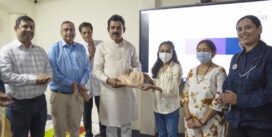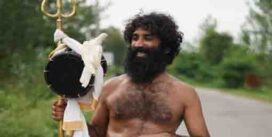- Anirudh Surya on his Role in Kanneda: "It Reminded Me of Mahesh Manjrekar in Kaante, but with a Lot More Play"
- Manushi Chhillar’s Wise Words on Passion, Perseverance, and Practicality
- शोबिज़ का सपना? मानुषी छिल्लर के समझदारी भरे विचार—जुनून, धैर्य और व्यावहारिकता पर जोर
- Viineet Kumar Siingh Dedicates His Big Win To Fans, Says 'This Award Belongs To Each and Every One of You'
- विनीत कुमार सिंह ने अपनी बड़ी जीत प्रशंसकों को समर्पित की, कहा – 'यह पुरस्कार आप सभी का है'
‘I thought she would be a cry-baby’, Tina Philip shares her misconception about playing Vidhi in Aye Mere Humsafar

Mumbai. It’s been about a week that the audience has seen the return of Tina Philip on their television screens with a new show, Aye Mere Humsafar. The actress plays the character of Vidhi Sharma who has a physical disability.
However, she does not let that deter her passion and zest for life. Vidhi hopes to be an IAS officer. She loves her family dearly, especially her mother who wants her to get married.
Aye Mere Humsafar is a women-centric fictional drama that revolves around the challenges which women face while trying to find a balance between their dreams and taking care of their family.
Sharing her first reaction when she heard the narration of her character ‘Vidhi Sharma’, Tina Philip says, “Initially, when I heard the narration of Vidhi’s character, I formed a notion about her in my mind, but soon found her to be jovial.
I thought she (Vidhi) would be cry-baby (in the show) since she has a physical disability. You know, people are quick to pinpoint. I thought I would have to keep crying throughout the show but that is not the case. Vidhi gives it back in her own sweet way to anyone who crosses her.”
The story of Aye Mere Humsafar will take viewers through the journey, struggles and thrills of a simple, rational minded and extremely bright in academics, Vidhi Sharma, who has channeled her focus on becoming an IAS officer after coming to terms with the thought that a woman with physical disabilities will not be accepted by a man and looked down upon by society.


